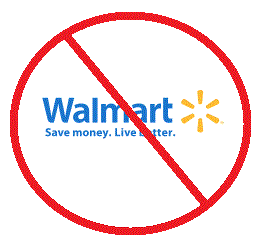Businesses, STOP Buying Computers From Big Box Stores!
 Recently, we had the displeasure of, once again, assisting a client with a new Windows computer for his business. The scenario was an all too common one: A need is identified for a new or replacement device but the company can’t wait for Dell to ship the machine out. What happens next is why we at Calwell always recommend customers never purchase business desktop PCs from a big box store.
Recently, we had the displeasure of, once again, assisting a client with a new Windows computer for his business. The scenario was an all too common one: A need is identified for a new or replacement device but the company can’t wait for Dell to ship the machine out. What happens next is why we at Calwell always recommend customers never purchase business desktop PCs from a big box store.
Now, there are always exceptions – so it’s important to acknowledge them. Apple computers will be the same no matter where purchased, and some big box companies do sell business-ready PCs. Our advice is simply a guide to save you disappointment. In this context, we consider Best Buy, Staples, Wal-Mart, Costco and Future Shop big box stores. Companies like Tigerdirect and MDG are more difficult to apply to this list, but may still apply.
What’s going on? Simply, Businesses are being gouged by big box stores for buying consumer-focused computers sold by poorly trained staff. The higher cost of buying more appealing and conveniently accessible computers at a big box store can sometimes double the price after cleaning unneeded software, upgrades are made and problems are corrected. Over the years, we’ve seen too many of the cases to count – but the outcome is almost always the same. If you want to buy a computer for your kids, the big box store is the right place to go. If you want a computer for your business – stick to computers built for that purpose.
Don’t see it? Here are some of the common costs of buying from a big box store:
2. Time is wasted with pre-installed software. This labor cost often frustrates clients, but are often a number of applications pre-loaded that need to be removed. Some of these include highly restrictive personal firewall software, intrusive personal software, games and virus scanners not used in company.1. Software costs can skyrocket. In one scenario, none of the PCs available included Windows 7 Pro, so our client needed to purchase an upgrade for $150 after buying a computer with Windows Home Premium (effectively paying for Windows twice). In addition, the sales agent pressed our client to buy a retail copy of Microsoft Office, when the single PC key card version would have been a better choice. In total, $400 was spent on top of the cost of his computer.
3. Compatibility or quality problems. This is generally a product of computers that may have less integration value. In one case, a version of Windows installed had serious difficulty installing updates and a number of serious errors happened when a simple Windows Anytime Upgrade was attempted. Often driver interactions lead to serious failures because they may have not been thoroughly tested.
4. Poor quality hardware. This is certainly not guaranteed at a big box store, but often enough you’ll come across very poor quality hardware in these computers. One such case involved creating recovery CDs (because no media was provided). While burning, the process failed twice no clear indication if this was a drive or software error. Eventually the recovery disks were created after some difficulty.
5. Other smaller hassles. For example,a PC from a big box retailer included a multiple format card-reader where each of the card slots used up a drive letter. In addition, the drives were all hidden from Explorer and My Computer so when an important company drive mapping failed – all the customer saw was a missing drive and no indication of the problem.
All told, you could end up with a computer that might easily cost double; not to mention the frustration involved. The sad end of this story is that these computers are usually not going to last longer than two years. The lure of getting a computer fast shouldn’t force you to risk serious costs to your business. Companies like Dell have started to offer faster shipping on some models too. So, be smarter about this, your pocketbook will thank you.

